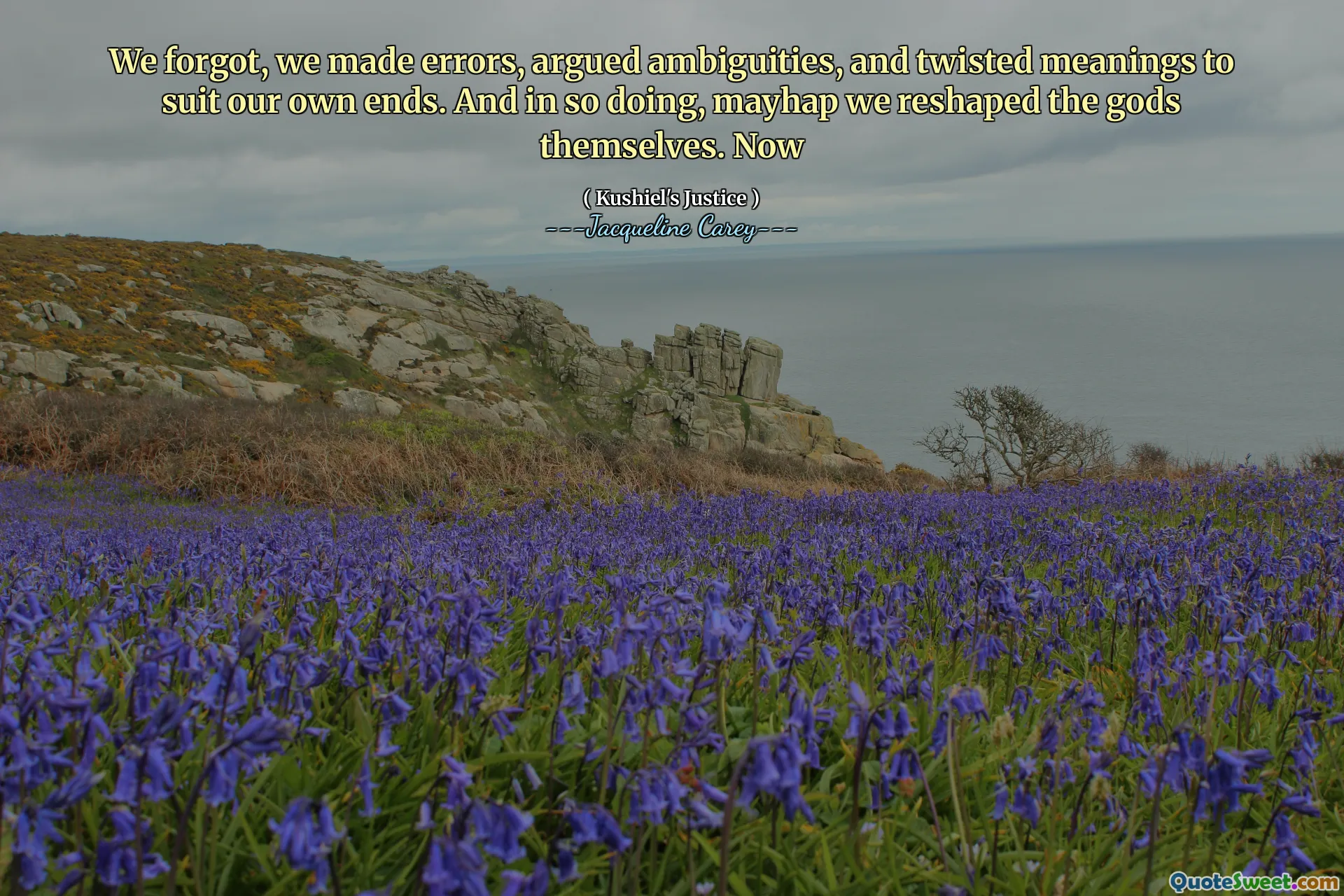
We forgot, we made errors, argued ambiguities, and twisted meanings to suit our own ends. And in so doing, mayhap we reshaped the gods themselves. Now
This quote reflects on the profound human tendency to distort and manipulate truth and meaning in pursuit of personal or collective agendas. It suggests that in our flaws—forgetfulness, error, misinterpretation—we have inadvertently or perhaps intentionally altered the very essence of the divine or the sacred. This notion resonates deeply, as it acknowledges that human perception is inherently fallible and subject to bias. Our tendency to argue over ambiguities and twist meanings can be seen as a reflection of our desire for control or understanding, yet it often leads to a fractured or incomplete grasp of deeper truths.
Furthermore, the idea that through these distortions we could have reshaped the gods themselves introduces a layer of metaphysical consequence. It implies that human beliefs, perceptions, and interpretations are powerful enough to influence or even redefine divine concepts or entities. This can be a commentary on the fluidity of faith, the evolution of religious ideas, or the ways in which cultural narratives adapt over time.
The phrase 'Now' at the end sets a tone of ongoing consequence—implying that the repercussions of these distortions are still at play, perhaps warning us to be more mindful of how we interpret and engage with the sacred. It invites reflection on humility and the recognition of our limitations in understanding the divine or ultimate truths. Overall, this quote underscores both the creative and destructive potential inherent in human interpretation.
In a broader sense, it serves as a reminder of our responsibility in shaping belief systems and the importance of humility in our quest for meaning and understanding, acknowledging how easily our biases and errors can distort reality and influence perceptions of the divine.






